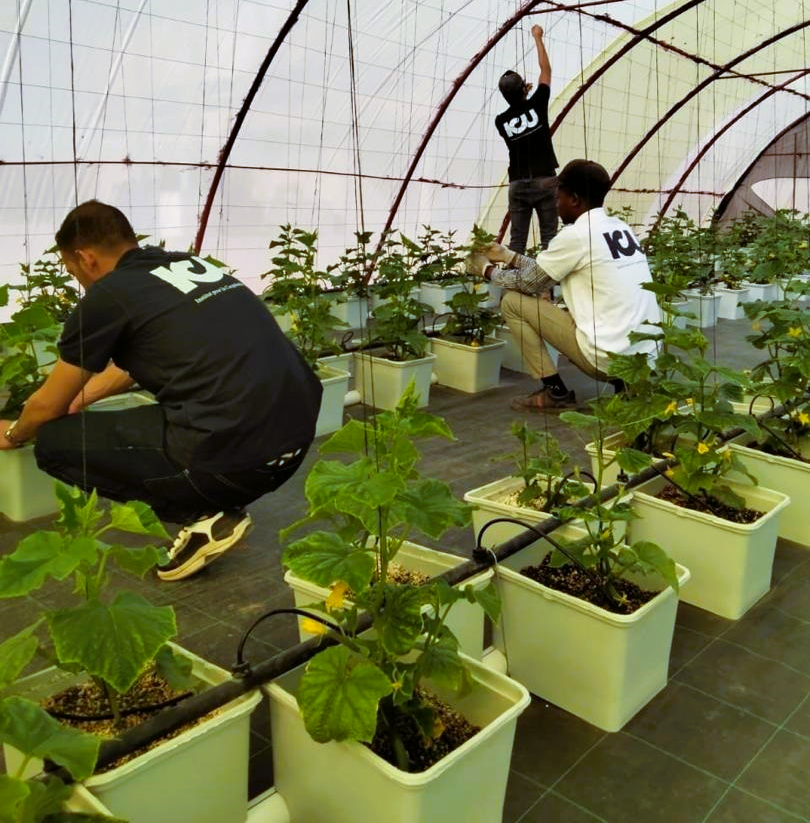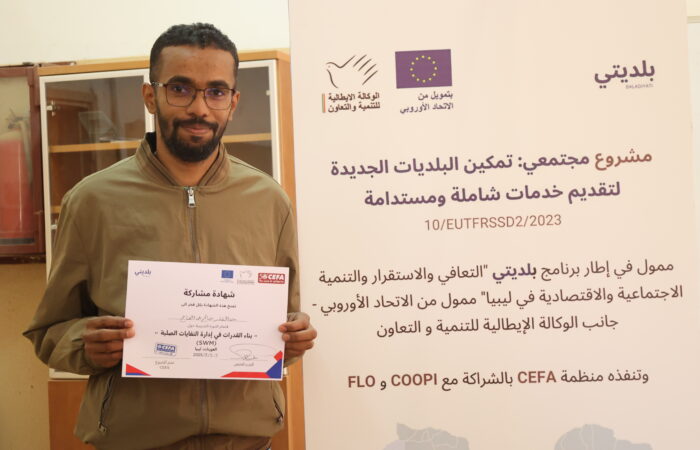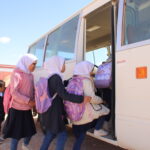Under Baladiyati, AICS teamed up with ZIRAA, a project implemented by ICU and Kafaa to prompt in new hydroponic systems and making farming in Sebha and Ubari more sustainable, bringing to the forefront something innovative, sustainable and community-oriented.
Two hydroponic greenhouses have been installed respectively in the “Art and Science College” in Ubari and in the “College of Technical Sciences” in Sebha. The choice of these locations was motivated by the need to ensure accessibility for all residents in the area and to provide opportunities for lecturers and students to conduct research.
These structures, with their Quonset shape, measure 40 meters in length, 9 meters in width and 3 meters in height, and are crafted with robust 2-inch steel pipes. The yellow plastic cover allows ample sunlight for the thriving plants, and the greenhouse floors, covered with a straightforward plastic mesh, are slanted toward hidden water tanks for cleanliness. The installed greenhouses cover an area of approximately 40 square meters and utilize Dutch buckets, perlite as a growing medium, and a closed irrigation system.
Underground, the main and backup tanks work discreetly, preventing algae growth. Inside each greenhouse, 560 Dutch buckets have been arranged, connected to an uncomplicated irrigation system with drip emitters ensureing precise water and nutrient delivery.
The greenhouses are equipped with cooling systems and fans, functioning using solar panels, boosting a shift towards sustainable energy. An efficient irrigation system component was also implemented, emphasizing smarter water use.
Beyond the technical aspects, this initiative prioritizes people. The overall objective of the greenhouses is to support vulnerable communities and farmers by offering a space for cultivating crops and generating new income. Training sessions at the “Art and Science College” (22 beneficiaries) and the “College of Technical Sciences” (21 beneficiaries) have been delivered to participants ranging from agricultural associations to business incubators, who delved into hydroponic farming basics, water testing and practical skills like building and setting up the greenhouse. These trainees will become trainers in charge of sharing the acquired new skills and competences to other farmers in these areas, spreading this innovative technology in the region.
The two hydroponic greenhouses represent a commitment to a greener future and a community bound by newfound knowledge and shared innovation. Cucumber production has already begun in Sebha, and it is expected to start soon in Ubari. The echoes of this project linger, leaving behind a green legacy in the Southern Libya’s landscape.






